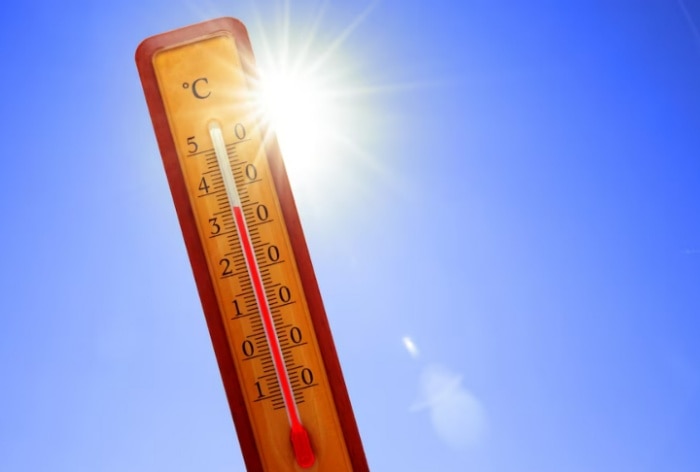Heatstroke has become a common health issue several people face amid rising temperature. Here is how it actually can be damaging for the body.

The sun is shining bright over our heads and the summer season has properly set in. Heatwave alerts have been sounded in a few parts of India. Amid rising temperatures, fainting, dehydration, summer allergies have become common. Heatstroke is another severe and common health issue that people may face amid heatwave-like situation.
What is heatstroke? This is a condition that is caused due to high body temperature. Often, prolonged exposure to heat and physical exertion can lead to elevated body temperature and when the body is not able to manage it, it leads to heatstroke. This happens when the body temperature reaches 40°C (104°F)
When the body experiences heatstroke, it can have several significant impacts on various bodily systems.
What Happens During a Heatstroke?
- Elevated Body Temperature: During heatstroke, the body’s temperature regulation mechanisms, such as sweating, become overwhelmed, and the core body temperature rises rapidly. This extreme heat can cause damage to the brain, heart, kidneys, and other organs, potentially leading to organ failure if left untreated.
- Dehydration and Electrolyte Imbalances: Excessive sweating and the inability to replenish fluids during heatstroke can lead to severe dehydration and electrolyte imbalances, such as low sodium, potassium, and magnesium levels.
- Neurological Symptoms: Heatstroke can cause various neurological symptoms, including confusion, disorientation, seizures, and even coma, due to the direct impact of high temperatures on the brain.
- Heart Health: The body’s cardiovascular system is under significant stress during heatstroke, as it tries to distribute blood to the skin to facilitate cooling. This can lead to an increased heart rate, decreased blood pressure, and an elevated risk of heart-related complications.
- Organ Damage: Prolonged exposure to extreme heat can cause damage to various organs, including the liver, kidneys, and muscles, leading to further complications and the potential for long-term health consequences.
Heatstroke: Essential Ways to Manage it
- Immediate cooling is crucial when someone experiences a heatstroke. Move the individual to a cool, shaded area, remove excess clothing, and apply cool, wet towels or ice packs to the body. Seek immediate medical attention.
- Provide the individual with cool, clear fluids, such as water or electrolyte-rich sports drinks, to help rehydrate and restore electrolyte balance.
- Closely monitor the individual’s heart rate and blood pressure, and be prepared to provide supportive cardiovascular care if needed.
- Closely monitor the individual’s organ function through laboratory tests and provide appropriate medical interventions to support the affected organs and prevent or mitigate further damage.
During summer, it is imperative to keep the body hydrated at all times. Ensure a nutrient-rich diet and focus on building stamina and immunity. Healthy lifestyle choices can help keep the body fit.
Preventing and managing heatstroke requires a multi-faceted approach, including staying hydrated, avoiding prolonged exposure to extreme heat, and seeking immediate medical attention at the first signs of heatstroke. It is crucial to recognize the seriousness of this condition and take prompt action to protect the individual’s health and well-being.

